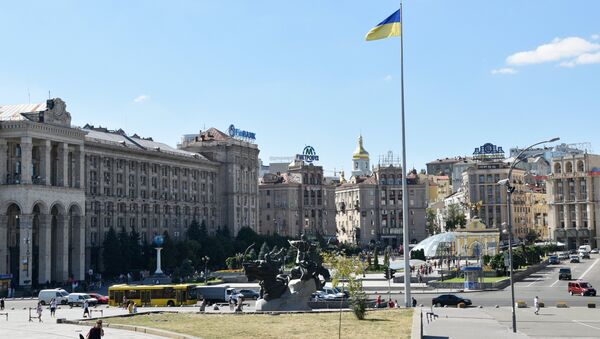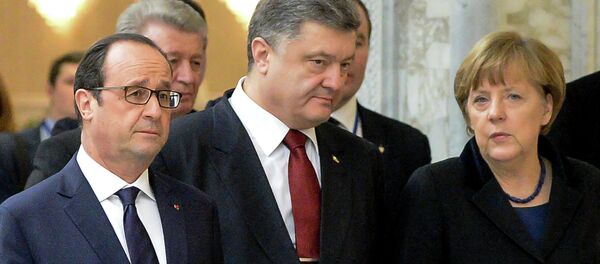"[Surkov and Nuland] discussed issues of pulling forces back from the designated areas, which are complicated by the disruption of the [Minsk] agreements by the Ukrainian side…The talks concluded by the sides agreeing to increase pressure on Kiev to speed up the implementation of the Minsk agreements and set up a direct dialogue between Ukraine and the Donbas republics," Alexey Chesnakov, the director of the Center for current policy (CCP), told RIA Novosti.
The sides noted that proposals made by Ukraine on resolving the political points of the settlement, which involve devolution and constitutional reform, do not conform to the Minsk agreements.
The work of the Organization for Security and Co-operation in Europe Special Monitoring Mission to Ukraine (OSCE SMM) was also mentioned, with the sides stressing that monitors have had unimpeded access to the Russian-Ukrainian border and did not see foreign troops and did not record any Minsk agreement violations.
Kiev launched a special military operation in Ukraine’s southeast in April 2014, after local residents refused to recognize the new Ukrainian authorities, which came to power as a result of a coup.
In February 2015, a peace agreement was signed between Ukraine’s conflicting sides in the Belarusian capital of Minsk, after talks of the Normandy Four countries, comprising Russia, Ukraine, France and Germany.
The deal stipulates a full ceasefire, weapons withdrawal from the line of contact in eastern Ukraine, an all-for-all prisoner exchange and constitutional reforms, which would give a special status to the self-proclaimed Donetsk and Luhansk people’s republics in the Donbas. Both sides of the conflict, however, are constantly accusing each other of violations of the agreement.



